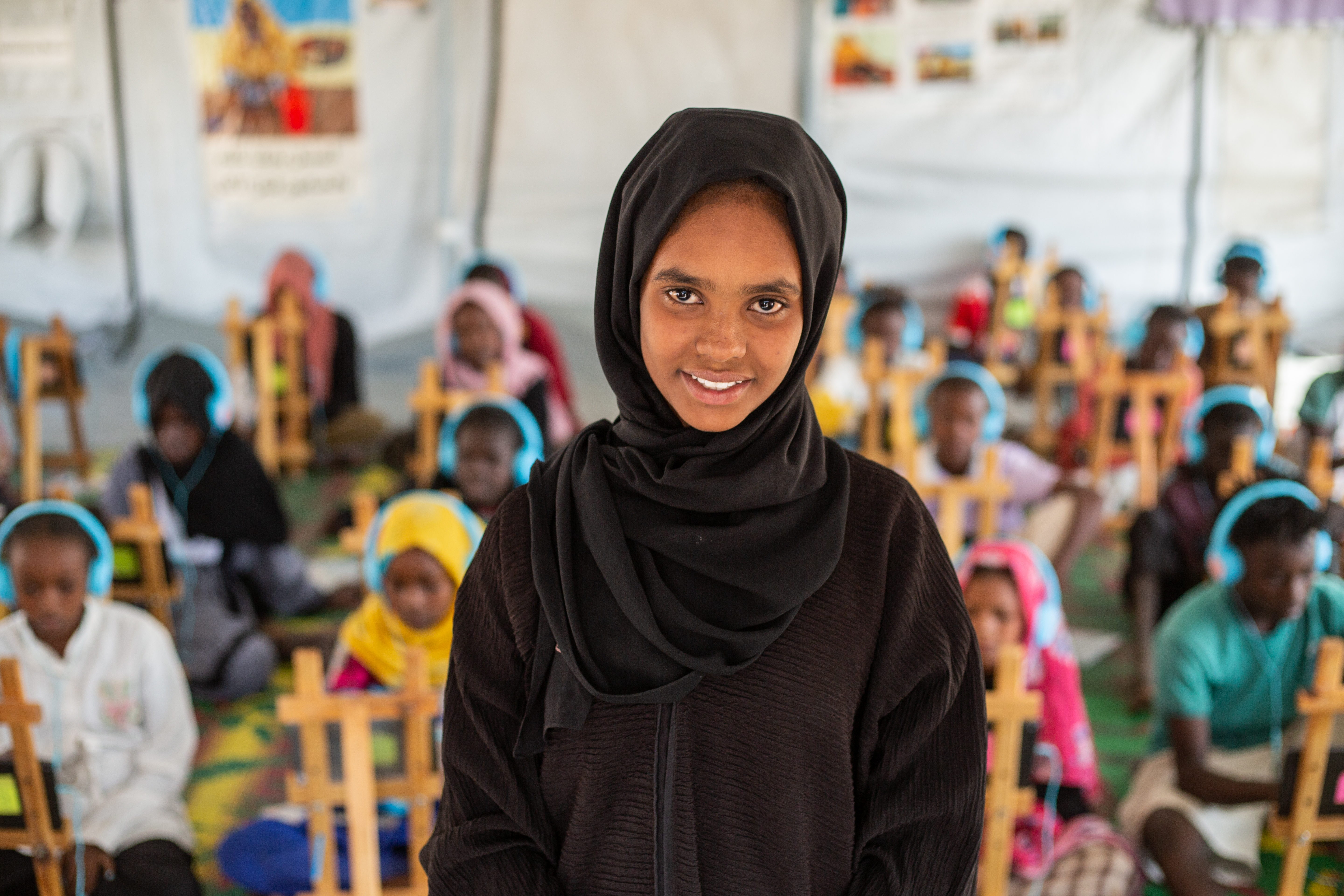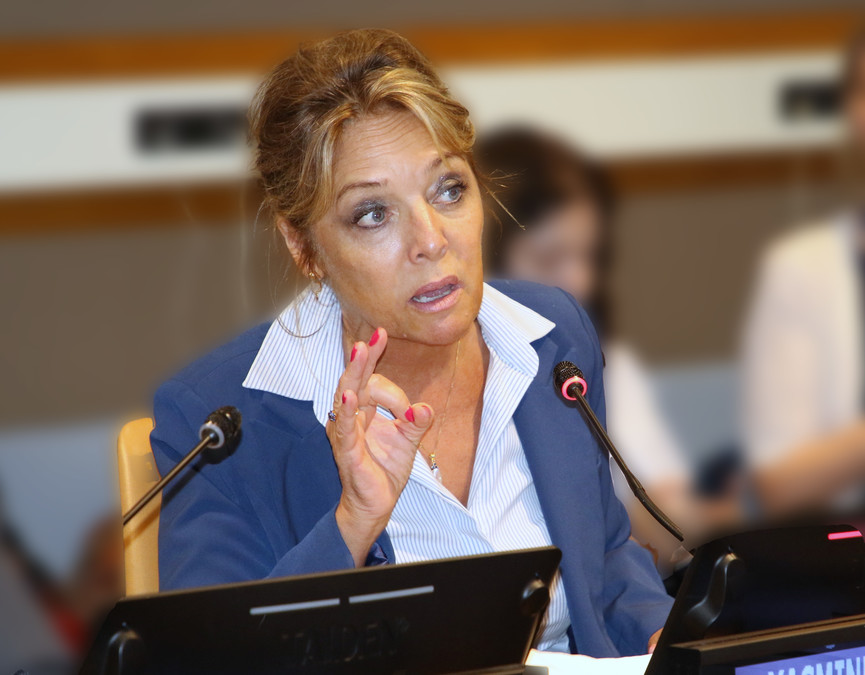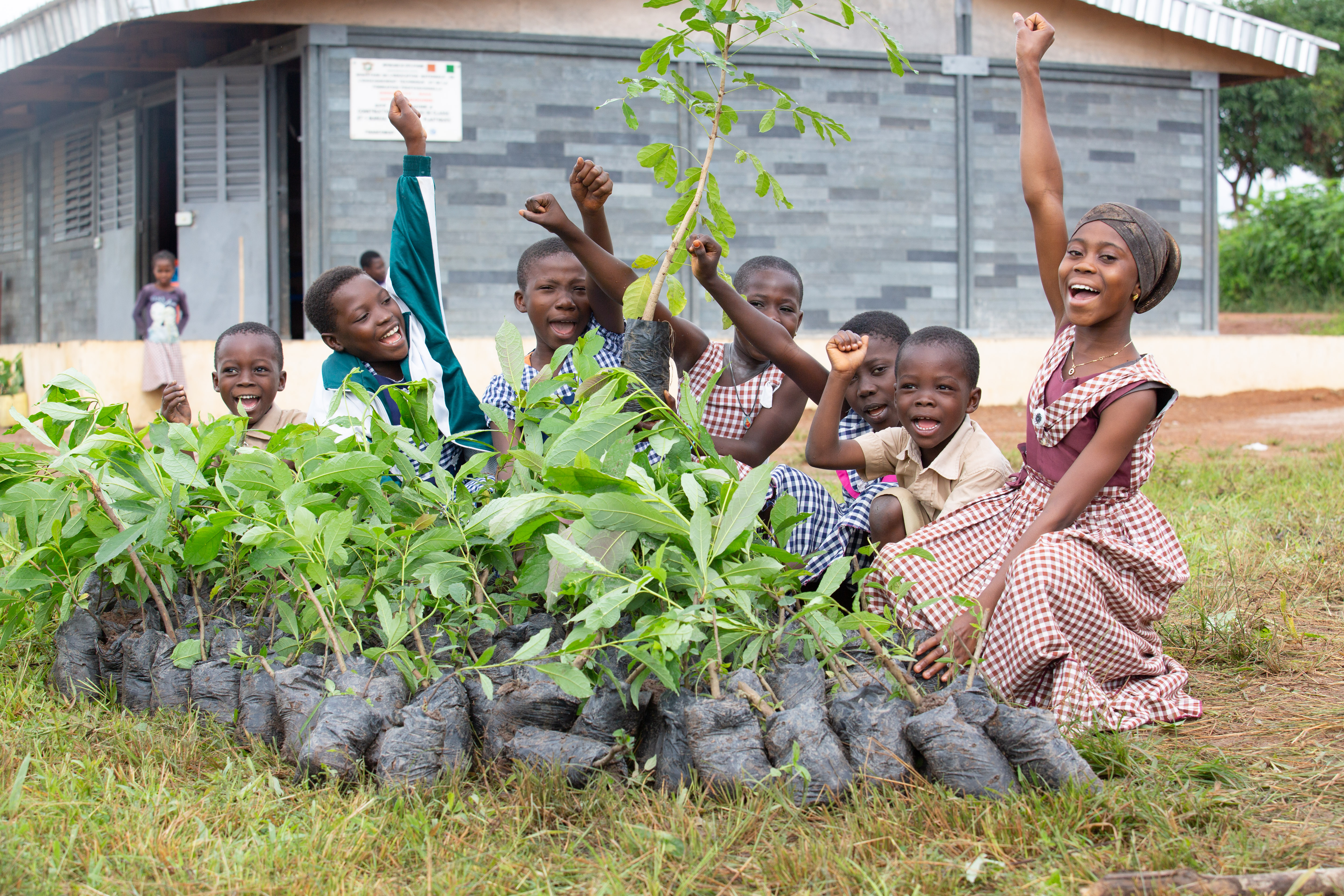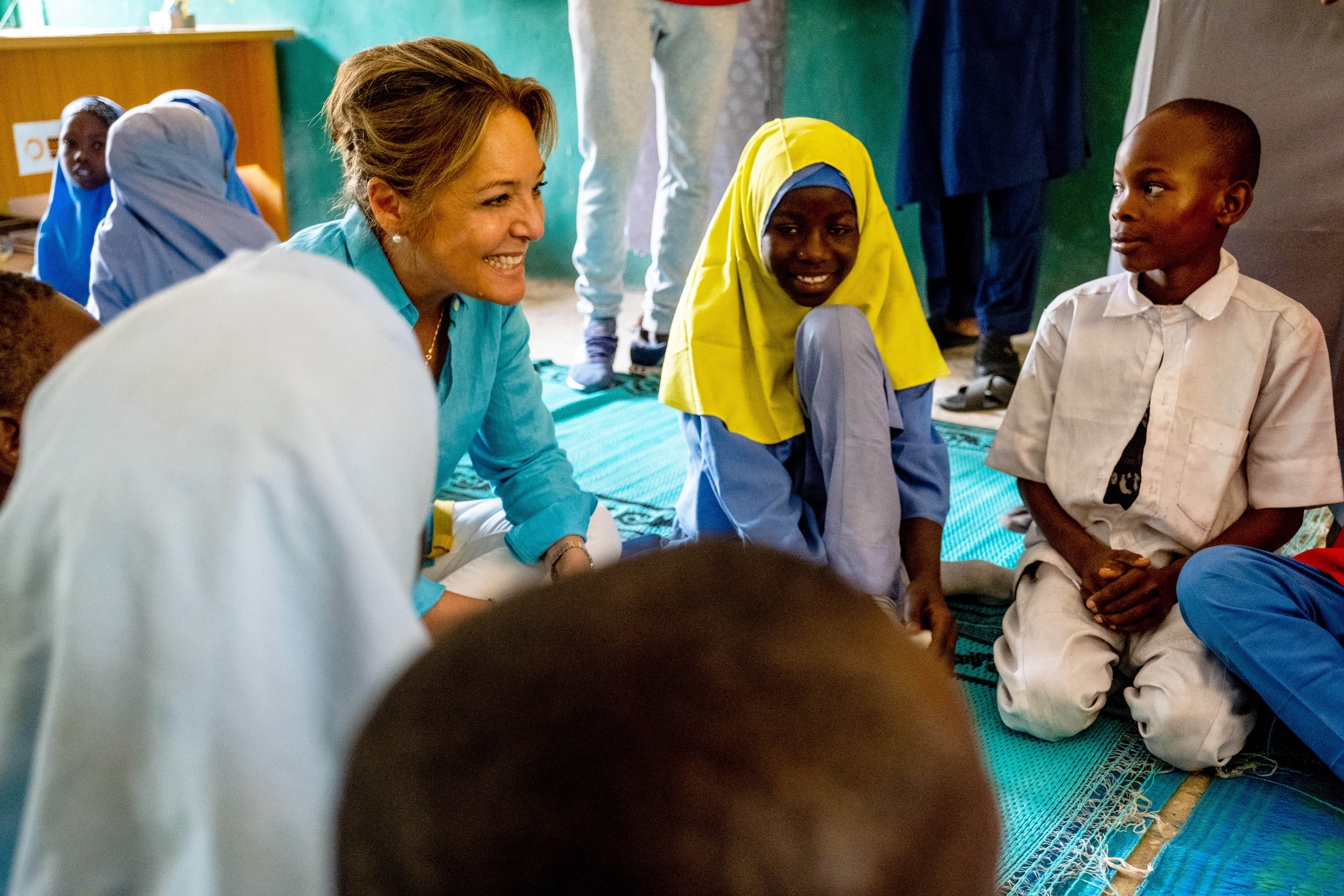Unleashing the Potential of Youth: Youth2030 and Generation Unlimited
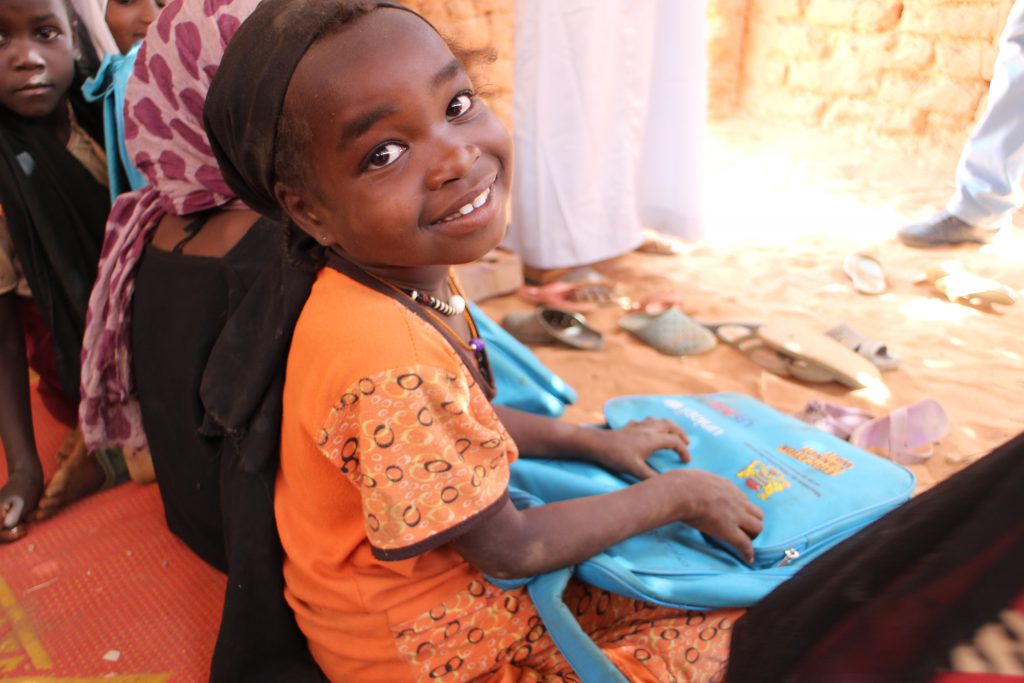
By Yasmine Sherif
The future of our humanity relies on the young generation. In a world that still bares the deep wounds of war, hunger, displacement, conflict and inequalities, we need to step up to find lasting solutions for our next generation of leaders and citizens of the world. At the heart of our resolve lies quality education to the 75 million children and youth living in conflict and crisis. Their potentials and contribution to our shared future warrant urgent attention.
I am heartened that the 73rd session of the United Nations General Assembly kicked off with a strong commitment for the world’s young people. The launch of the Youth2030: United Nations Youth Strategy, including its Generation Unlimited initiative, helps build momentum toward a world in which the human rights of every young person are realized, and where education is delivered to young people no matter where they are – be it in a displacement settlement in Afghanistan, in one of Uganda’s refugee camps, or in a Rohingya refugee settlement in Bangladesh.
Having served in conflicts and crisis for nearly 30 years, and as a mother of two young people, I feel especially passionate about the United Nations Youth Strategy and its immediate correlation to quality education.
Young people hold the key to humanity’s future – and yet, they too often bear the brunt of today’s conflicts and crisis. Our conscience cannot bear for much longer the fact that 75 million children and youth in crisis do not have access to the quality education required to achieve their potentials, all while they are exposed to exploitation, forced recruitment into armed groups, trafficking, sexual violence and disabilities caused by mines, unexploded ordnances and violence of all forms. This cannot continue, or else we all will lose our humanity.
Look at Syria, where there are now over 2.5 million internally displaced children and adolescents. These boys and girls have no easy way out, and limited opportunities for education, skills training or alternatives to violence. An additional 2.6 million Syrian children are refugees in neighboring countries. Despite their commendable efforts to meet refugees’ educational needs – such as the double-shift school system put in place in Lebanon – without additional international support, host countries lack the required resources to offer quality education and skills training to all refugee children and youth.
The numbers from Syria are simply appalling, and these are just a glimpse of the urgent needs that exist in some 30 crisis-affected countries worldwide. If immediate action is not taken, we are likely to see more violence, more extremism and more broken dreams for an entire lost generation.
Globally, an estimated 40 percent of child soldiers are girls. Girls – particularly adolescent girls – living in conflict and crisis areas face higher risks of sexual violence, abduction, slavery, early and forced marriage, and early pregnancies.
Better wages for teachers, better opportunities and protection for girls to access education, more adequate and relevant educational opportunities to gain employment, and more creative solutions-orientation will be required. This is notably the case in the Middle East and North Africa (MENA) region, which has the highest youth unemployment rate in the world – 29.4 per cent in Northern Africa and 24.7 per cent in the Arab States. The unemployment rate for young women in the region is even higher, with 4 out of 10 facing unemployment.
Special attention needs to be paid to building a generation unlimited not just for boys, but also for girls. We need to step up our support to education for refugees, internally displaced populations, as well as for minorities and young people with disabilities.
Together with our humanitarian and development partners across the United Nations system, the private sector, multilateral and bilateral donors, regional bodies, governments, non-governmental organizations and civil society, ECW works to achieve precisely this: empower crisis-affected children and youth to become positive agents of change, peace, conflict resolution and sustainable development.
The groundbreaking ECW-facilitated multi-year resilience programmes for education in crisis pioneer the “new way of working” and education in the humanitarian and development nexus. It brings the voices of young crisis-affected people to center stage, as our collaborative and localized approach includes consultations with affected people to shape and adapt the responses to children and young people’s needs, as well as their untapped resilience.
Girls and young women are ECW’s absolute top-priority because they are the ones left furthest behind. Their education and empowerment cannot wait any longer. Nearly half of the 800,000 children and youth reached by ECW thus far in 17 crisis-affected countries are girls and adolescent girls, because ECW and our partners focus on gender-targeted interventions to reach the furthest behind. For example, it means recruiting female teachers for biology and science, and moving schools closer to girls’ communities; it means involving parents and educators to promote safe hygiene and non-violent discipline, and it means applying gender-sensitive curriculums.
As a global fund addressing the education gap in crisis and conflict settings, ECW is committed to contribute to advancing the United Nations Youth Agenda. ECW was created to ensure the young, bright minds who are enduring crisis will no longer be left behind. Together with our partners, we are determined to deliver on this promise and ensure that the resilience, strength and determination of young people in crisis do not get lost in the darkness of wars and disasters, but rather become a beacon of light in making the world a better place.
Yasmine Sherif
Director
Education Cannot Wait
For more information on the Youth2030 Strategy: www.un.org/youthenvoy/
For more information on the Generation Unlimited initiative: www.GenUnlimited.org
Tweets
Additional Statements and Updates
